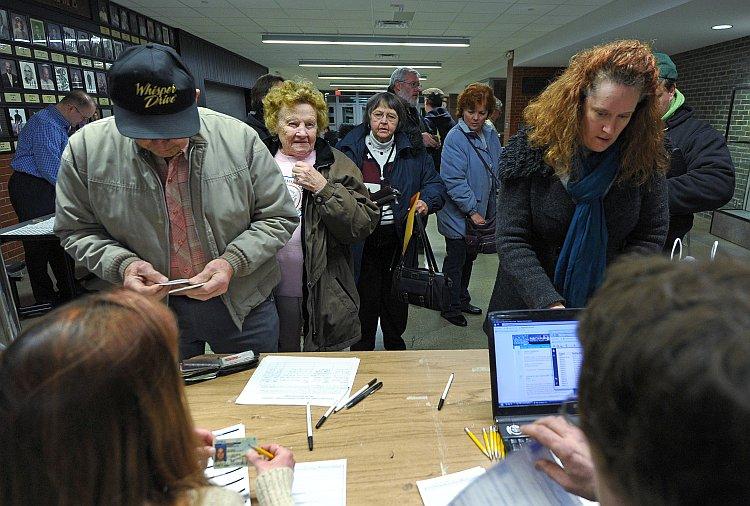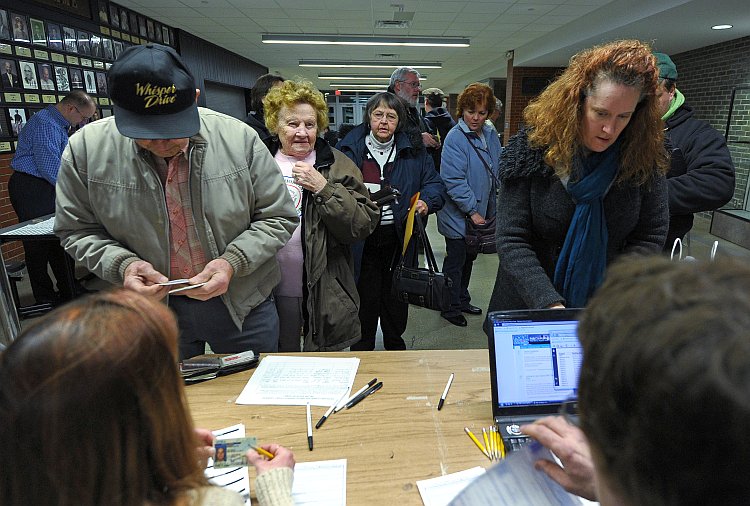Updated Wed. Jan. 4 at 10:23am EDT
In a twisting and turning two-man contest, former Massachusetts Gov. Mitt Romney and former Pennsylvania Sen. Rick Santorum ended up in a virtual tie in the Iowa caucus race, with Romney in fact eking out a minuscule win by a margin of only 8 votes. U.S. Congressman Ron Paul trailed a few points behind.
Continuing the months-long campaign marked by volatility and a continual stream of contenders, Romney and Santorum went neck and neck as the last votes from the Western border regions of America’s heartland state came in. In the end, Romney and Santorum finished with 25 percent of the vote, with Romney claiming 30,015 votes, compared to Santorum’s 30,007. Ron Paul came in third at 21 percent, or 26,219 votes.
Newt Gingrich came in fourth with 13 percent, Rick Perry fifth with 10 percent, Michele Bachmann with 1 percent, and Jon Huntsman—who did not contest Iowa—also with 1 percent of the vote.
Romney, 64, ran a cautious but dogged campaign, focusing lightly on policy and hard on patriotism, but reports from the ground say he was largely seen as the candidate who could best address economic concerns.
Rick Santorum, 53, whose new-found position will see him scramble for funds and infrastructure in the coming contest, was rewarded for running a traditional grass-roots campaign, visiting 99 counties in Iowa and focusing on social issues. He appealed strongly to conservative non-Romney Republican voters.
Ron Paul, 76, who had told CNN earlier he had not really imagined himself in the Oval Office, gained support from younger voters and independents, appealing to them with his consistent line of small government, respect for the Constitution, and a noninterventionist foreign policy.
While the Iowa caucuses are not known for picking winners, the rural state is recognized as sorting the wheat from the chaff, although some of the contenders may have missed that message.
Michele Bachmann thanked supporters at the end of the night and indicated she was heading to South Carolina to campaign there, despite being an Iowan by birth and not taking a single precinct.
Rick Perry had indicated earlier in the day he would continue his campaign, but at a thank-you speech to supporters in Iowa at the end of the night, said he would return to Texas and review his situation.
Newt Gingrich, smarting from a low turnout and a barrage of negative advertising largely from the Romney camp, has indicated he will take the fight to Romney, accusing him of being a liar and a “Massachusetts moderate.” He has reportedly taken out advertising space in New Hampshire for the primaries there next week and told supporters he is preparing for South Carolina.
This is the second presidential campaign for Romney, who lost to Mike Huckabee in 2008 after a $10 million campaign.






